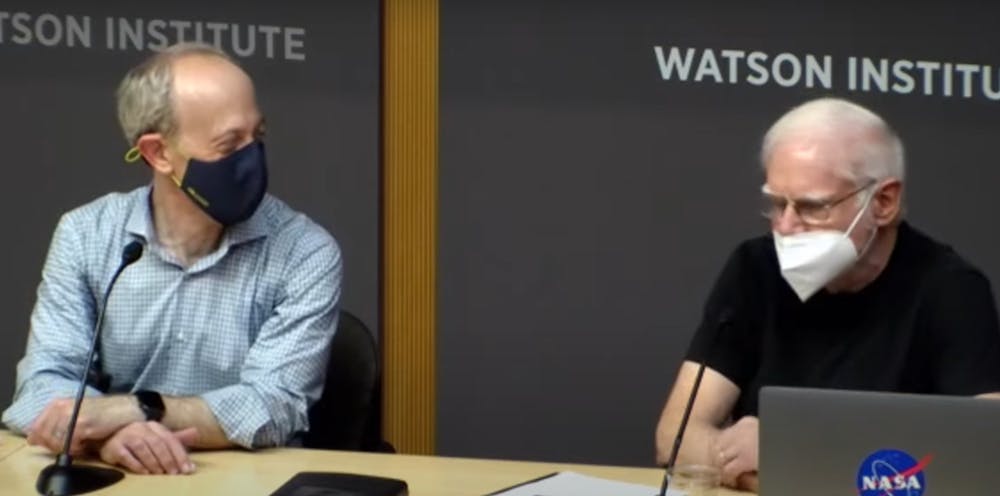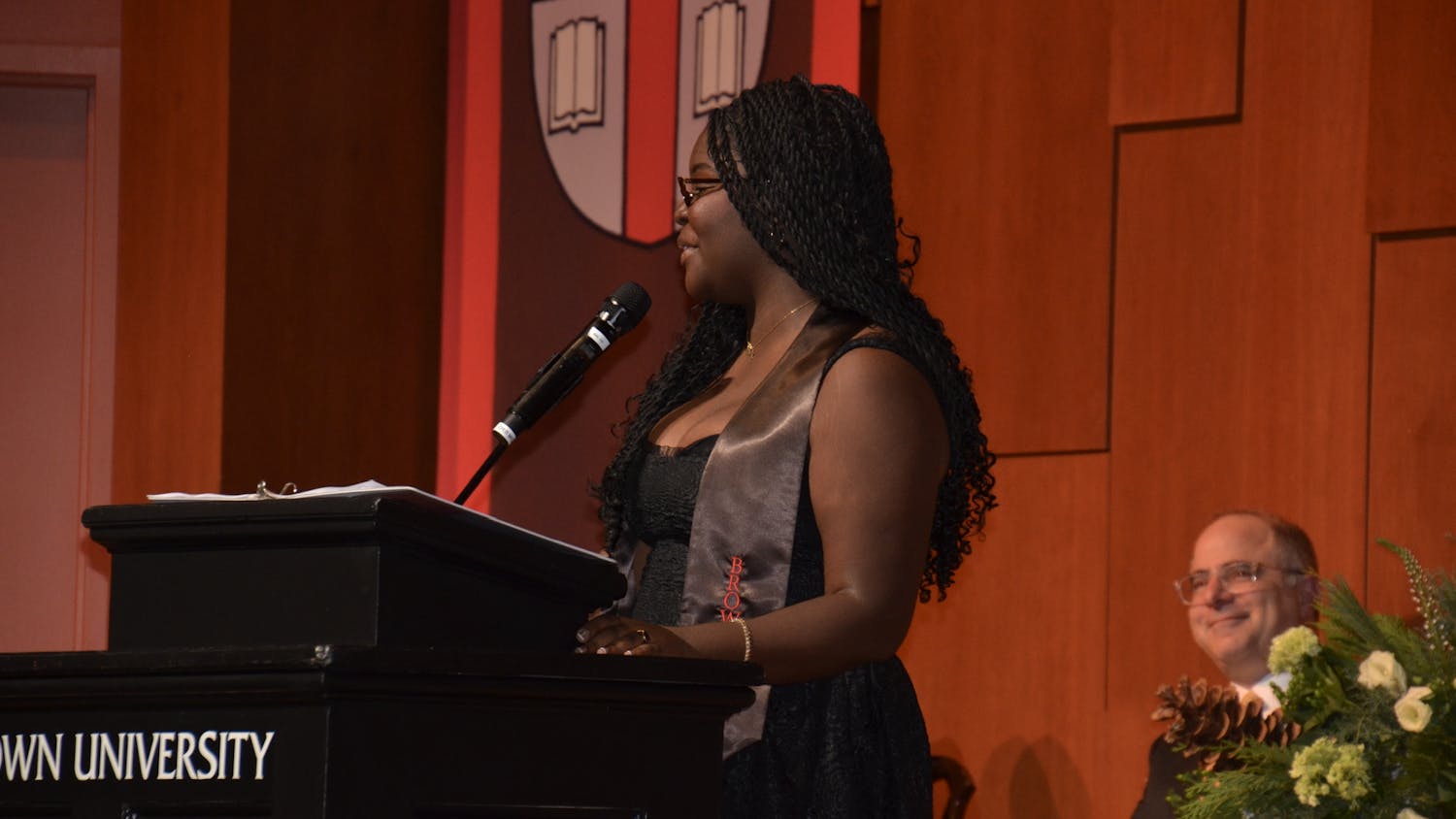In a Thursday evening conversation at the Watson Institute for International and Public Affairs, Jeff Shesol ’91 discussed his new book, “Mercury Rising: John Glenn, John Kennedy, and the New Battleground of the Cold War,” which discusses the space race and its ties to the Cold War in relation to U.S. history.
The conversation was facilitated by Jim Head PhD’69, professor of geological sciences, and Edward Steinfeld, director of the Watson Institute and professor of China studies and political science.
Shesol’s book documents John Glenn’s Feb. 20, 1962, mission to orbit the planet aboard Friendship 7 and “recreates the tension and excitement of a flight that shifted the momentum of the space race and put the United States on the path to the moon,” according to an event description posted on the Watson Institute’s website.
According to the description, Shesol’s book also references “new archival sources, personal interviews and previously unpublished notes by Glenn himself.”
Much of Shesol’s career path was influenced by his educational foundations at the University, he said. While attending Brown, Shesol concentrated in history, later going on to study the subject further at the University of Oxford as a Rhodes Scholar.
In the discussion, Shesol noted that “each time (he has) sat down to write a book,” the advice from a thesis writing class at Brown taught by Jack Thomas, former professor of American history, replays in his head, asking him the “historical question that (his) thesis is trying to answer.”
Previously, Shesol penned two New York Times Notable Books of the Year, “Supreme Power: Franklin Roosevelt vs. the Supreme Court” and “Mutual Contempt: Lyndon Johnson, Robert Kennedy, and the Feud that Defined a Decade.” He also has worked as a speechwriter for President Bill Clinton, as a contributor to the New York Times, the Washington Post and The New Yorker News Desk and as a founding partner of West Wing Writers, a speechwriting and strategy firm.
With regard to this most recent book, Shesol acknowledged that the topic is already widely discussed. “On a certain level, it’s obvious. This is an incredibly exciting story, the space race. It doesn’t need any help from me to make it exciting,” he said.
But for Shesol, the cause of the unparalleled cultural recognition of Glenn, the first American to orbit the Earth, had long been lost on him, as Glenn was neither the first American in space nor the first person to orbit the earth. This central guiding question of why the Friendship 7 evoked such a deep political and historical relevance was at the heart of Shesol’s writing process for his new book, and led him to investigate more deeply the influences of the Cold War on the space race and the way it was culturally interpreted in the United States.
It became clear to Shesol in his research that the Cold War and the space race were actually “parts of the same story,” with the space race serving as “an integral part of the Cold War struggle” in a global cultural context.
Head agreed with Shesol’s emphasis on the cultural influence of the Cold War on the space race, saying that the Soviet Union’s 1957 launch of Sputnik 1 increased the United States’ interest in space exploration in response to Soviet advances in the field.
Especially given other financial concerns in the same time period, Shesol and Head agreed that the extent of financial investment in space exploration could not have been justified on the basis of science only, making the cultural and historical subtext of these developments with regards to the Cold War all the more important in understanding how they came to be and why they made such an impact on the American public.
Kseniia Dolgopolova ’25, who attended the event, said that this was the first time she had heard a discussion surrounding a history book and found it “very informative but at the same time engaging.”
Since Shesol brings an in-depth historical perspective on the space race and Head has a scientific background with NASA during the same era as Glenn, she added, “it was very interesting to get the two perspectives.”
“Sometimes they were different, sometimes they were similar, but both of them could tell unique stories,” Dolgopolova added.
While, at the time, Glenn’s accomplishment of orbiting the planet was “totally inspirational” for the American people, Shesol noted the cultural visibility of space exploration has waned in recent decades. Today in particular, Shesol noted that polarization within the United States makes it far more difficult for the nation to rally together around a common goal in the same way it did with the space race.
Still, Shesol noted, the legacy of American exploration, research and investment in outer space lives on, laying the groundwork that later astronauts will eventually walk on.

Jack Walker served as senior editor of multimedia, social media and post- magazine for The Herald’s 132nd Editorial Board. Jack is an archaeology and literary arts concentrator from Thurmont, Maryland who previously covered the Grad School and staff and student labor beats.





